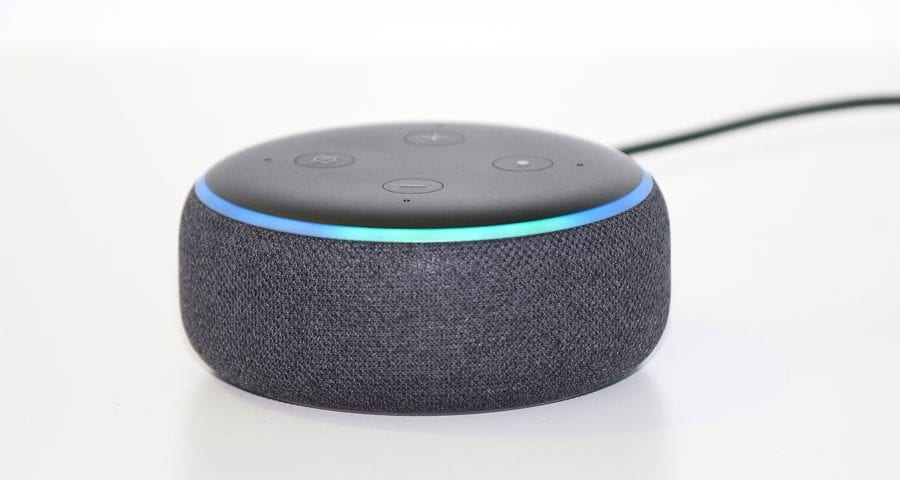
Aquarium wins the Insurance Post Creative and Innovation Award
February 26, 2020
Aquarium shortlisted for Insurance Post Claims Awards UK
March 23, 2020In 2019, around 3.25 million voice assistants were used globally according to Statista. The same report predicts this will vastly increase to more than eight billion units by 2023. Voice assistant technologies are now far removed from the basic capabilities of the first generations of Amazon’s Alexa and Apple’s Siri and have huge potential to deliver benefits to businesses and consumers.
According to Andy Searle at CGI Group, more than a quarter of the UK’s population now owns a smart speaker which they regularly interact with. Voice assistant technology has become commonplace on smart devices and enables people to source information, complete tasks and control other connected devices. Last year alone, Amazon’s Alexa was supported on 60,000 different home devices around the world. This will include making purchases and managing finances in the foreseeable future – simply by using voice to conduct transactions in a secure environment.
Here at Aquarium, we expect to see widespread use of voice assistants throughout the insurance industry in the next decade. The uptake of smart home assistants is following a similar pattern to the adoption of mobile and app-based interactions for service. Many people are already using a mobile device rather than a computer. Roll forward a few years, and in the same way, buying an insurance policy, checking a claim other than by just asking the assistant will be a thing “quaint practice” of the past.
No longer viewed as gimmicks, voice assistants are now sophisticated and accurate. They also take away the need to type commands into a computer or a mobile phone, so they offer huge convenience to the consumer. For example, someone could use a voice assistant to ask questions about their insurance while they are driving. A question about the excess for a pet insurance policy or checking on the status of a claim could be a simple and effortless, five second interaction done at the same time as getting the kids ready for school. This has the potential to deliver a significantly enhanced customer experience particularly in the USA and other markets where Aquarium operates.
Voice assistants could broaden the opportunity for those who are less tech-savvy or physically impaired to research and buy internet-based insurance products in the future. With no need to use a screen or a keyboard, voice is a simple way to buy or access insurance. This applies beyond pet insurance; for example, a person could choose to add winter sports cover to their policy, pay for this and have confirmation cover emailed all by using a voice assistant whilst packing their ski-pants into their suitcase!
This is why a key objective for Aquarium this year is to fully integrate the latest smart assistant technology into our platform. We are already working with our insurance customers to achieve this goal. By exploring the full potential of voice technology we can continue to deliver convenience, ease and flexibility to end customers.





